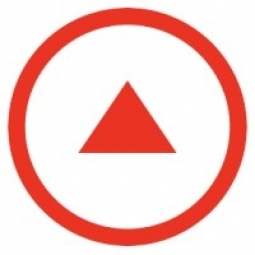Download PDF
COVID-19 Response
Technology Category
- Application Infrastructure & Middleware - Data Exchange & Integration
Applicable Industries
- Cities & Municipalities
- Healthcare & Hospitals
Applicable Functions
- Logistics & Transportation
- Quality Assurance
Use Cases
- Real-Time Location System (RTLS)
- Remote Asset Management
Services
- System Integration
The Challenge
The Cancer Registry of Baja California Sur was facing challenges in collecting and analyzing medical records and related data for the purpose of scientific research and public health policy formulation. The existing process involved field staff collecting all data by hand on paper and manually entering patients’ locations. This method was time-consuming and often resulted in inaccurately recorded locations. The COVID-19 emergency further complicated the situation, requiring the rapid collection and analysis of data to efficiently allocate resources and avoid duplicating efforts in delivering support packages.
About The Customer
The customer in this case study is the Cancer Registry of Baja California Sur, a public health organization involved in the analysis of medical records and related variables such as patient environment and demographics. The goal of their work is to perform cluster analyses and conduct scientific research to help in the formulation of better-targeted public health policies and budgets. During the COVID-19 pandemic, the organization redirected its efforts to the Community Alliance of Baja California Sur, aiming to efficiently allocate resources and avoid duplicating efforts in delivering support packages.
The Solution
The organization adopted Fulcrum, a data collection platform, to streamline their data collection process. Fulcrum allowed the organization to map and record data in a safe, agile, and intuitive way, with the data available immediately for analysis in different formats and platforms. The platform was used to record data about the person or institution receiving support packages, along with their georeferenced location and pictures. This helped in making operations transparent and easily accessible, generating reports for donors and government agencies, and efficiently allocating resources. The platform's ability to work offline and sync when networks are available was also vital, especially in areas with unreliable cellular/internet coverage.
Operational Impact
Quantitative Benefit
Related Case Studies.

Case Study
Turning A Stadium Into A Smart Building
Honeywell created what it called the “intelligent system” for the National Stadium in Beijing, China, turning the venue for the opening and closing events at the 2008 Summer Olympics into a “smart building.” Designed by highly controversial artist Ai Weiwei, the “Bird’s Nest” remains one of the most impressive feats of stadium architecture in the world. The 250,000 square meter structure housed more than 100,000 athletes and spectators at a time. To accommodate such capacity, China turned to Honeywell’s EBI Integrated Building Management System to create an integrated “intelligent system” for improved building security, safety and energy efficiency.
.png)
Case Study
Smart Street Light Network (Copenhagen)
Key stakeholders are taking a comprehensive approach to rethinking smart city innovation. City leaders have collaborated through partnerships involving government, research institutions and solution providers. The Copenhagen Solutions Lab is one of the leading organizations at the forefront of this movement. By bringing together manufacturers with municipal buyers, the Copenhagen Solutions Lab has catalyzed the development and deployment of next-generation smart city innovations. Copenhagen is leveraging this unique approach to accelerate the implementation of smart city solutions. One of the primary focus areas is LED street lighting.

Case Study
Hospital Inventory Management
The hospital supply chain team is responsible for ensuring that the right medical supplies are readily available to clinicians when and where needed, and to do so in the most efficient manner possible. However, many of the systems and processes in use at the cancer center for supply chain management were not best suited to support these goals. Barcoding technology, a commonly used method for inventory management of medical supplies, is labor intensive, time consuming, does not provide real-time visibility into inventory levels and can be prone to error. Consequently, the lack of accurate and real-time visibility into inventory levels across multiple supply rooms in multiple hospital facilities creates additional inefficiency in the system causing over-ordering, hoarding, and wasted supplies. Other sources of waste and cost were also identified as candidates for improvement. Existing systems and processes did not provide adequate security for high-cost inventory within the hospital, which was another driver of cost. A lack of visibility into expiration dates for supplies resulted in supplies being wasted due to past expiry dates. Storage of supplies was also a key consideration given the location of the cancer center’s facilities in a dense urban setting, where space is always at a premium. In order to address the challenges outlined above, the hospital sought a solution that would provide real-time inventory information with high levels of accuracy, reduce the level of manual effort required and enable data driven decision making to ensure that the right supplies were readily available to clinicians in the right location at the right time.

Case Study
Buoy Status Monitoring with LoRa
The Netherlands are well-known for their inland waterways, canals, sluices and of course port activities. The Dutch Ministry of Infrastructure indicates that there are thousands of buoys and fixed items in and near water environments that would profit from IoT monitoring. One of the problems with buoys for example, is that they get hit by ships and the anchor cable breaks. Without connectivity, it takes quite some time to find out that something has happened with that buoy. Not to mention the costs of renting a boat to go to the buoy to fix it. Another important issue, is that there is no real-time monitoring of the buoys at this moment. Only by physically visiting the object on the water, one gains insight in its status.

Case Study
China Mobile Smart Parking
Smart Parking, powered by NB-IoT technology, is making it easier for drivers to find free parking spots. Cities can better manage their parking assets and maximize the revenue available to them as a result. Drivers searching for parking create congestion and pollution by circling and hunting for available parking. Smart Parking services are able to significantly ease these problems by guiding a driver directly to a parking space.






